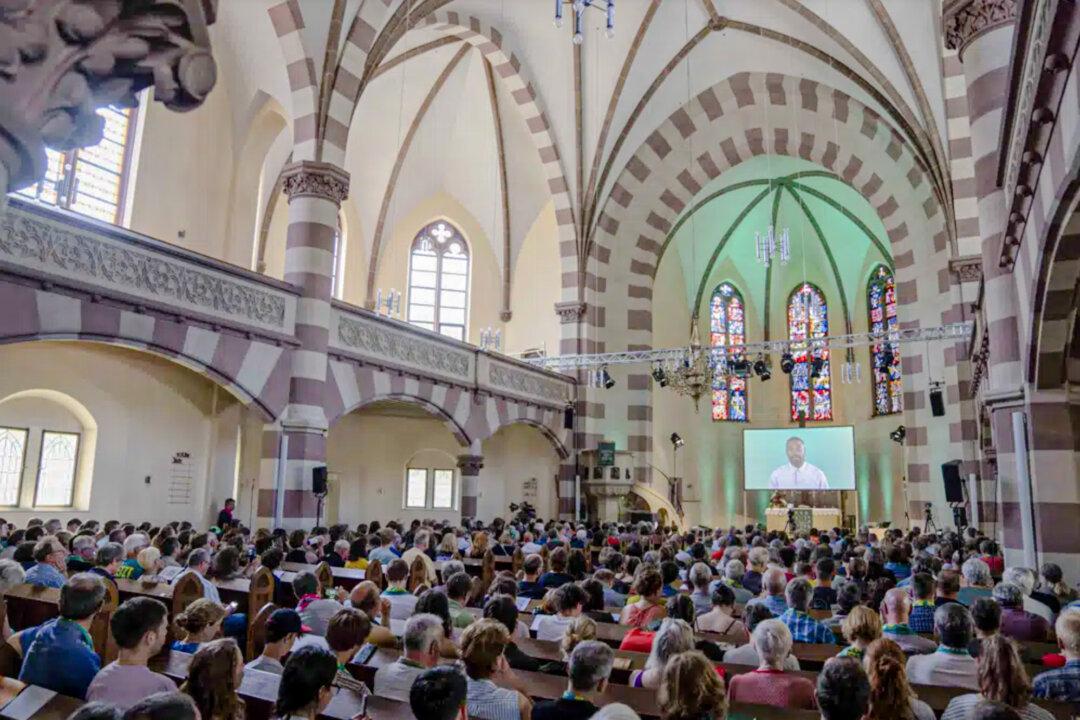Artificial intelligence is set to change the modern world in a variety of ways—generating art, assisting writers, and even emulating people’s voices. But few would have expected it to be tasked with writing religious services and even rewriting one of the most read and revered books in history, the Bible.
Yet, in Germany, hundreds of Protestants were led in a worship service in Nuremberg, Germany on June 9 by an expressionless “chatbot” delivering blessings and a sermon prepared by ChatGPT, an artificial intelligence (AI) program.





